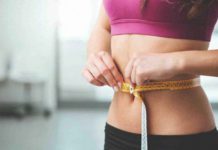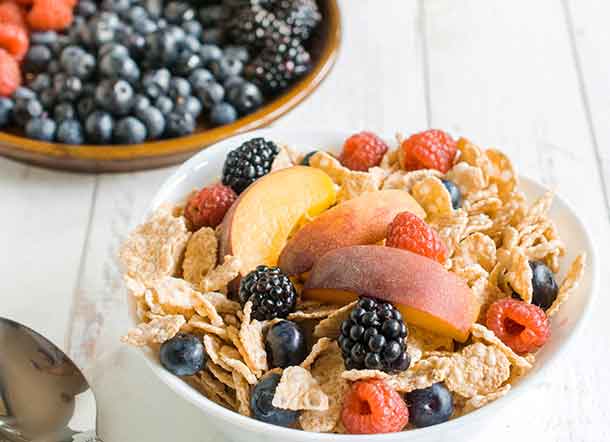
Pretty much every woman would agree that menopause is no easy thing to deal with. The number of hormonal changes that occur can have devastating impacts on your mental and physical well-being.
What Exactly Occurs During Menopause?
During menopause, women will experience a lot of changes. Not only are you very likely to gain weight, but you are also going to lose muscle mass simultaneously. The problem isn’t necessarily that you put on weight, it’s the type of fat you put on. When your metabolism slows to a crawl, it makes it easier to put on visceral fat. This is the fat that surrounds and ends up suffocating your organs.
It’s no secret that an increase in visceral fat causes you to be more susceptible to developing all kinds of diseases like heart disease and even diabetes. This is according to a clinical dietitian at Henry Ford Health. Luckily, there are ways to counteract this. One of the best is eating a diet that’s full of healthy nutrients. This means filling your diet with fresh vegetables, fruits, and whole grains. Having a diet that’s optimized like this can lead to the prevention of weight gain and it can even do wonders at curbing some menopausal symptoms.
What Foods You Should Be Eating
What you eat during menopause can directly impact the symptoms you experience. When going through hot flashes, irritability, and insomnia – your diet is one of the first things you should look at.
According to an expert menopause doctor, you need to be increasingly mindful once your estrogen levels start to decrease. Not only that, but you also need to ensure that you are taking in sufficient nutrients to protect your organs and bones.
Some Of The Best Foods To Eat:
- Vegetables and Fruits
Both vegetables and fruits are great sources of nutrients to get into your diet. They are full of healthy antioxidants that your body needs to protect itself on a cellular level. Some of the best to include in your diet include leafy green vegetables, carrots, eggplant, and even tomatoes. You will find that any fruit that is brightly hued or dark also contains some of the most powerful antioxidants like berries and cherries.
- Fatty Fish
Another good food source to start packing into your diet would be fatty fish. You want to ensure you are getting ample fatty fish into your diet to improve not only your mood but also to eliminate brain fog and improve your brain function. Another great thing about fatty fish is that they contain so many omega-3 fatty acids. As a result, it can be a good way to keep your blood pressure levels at optimal levels. This can help you minimize the occurrence of hot flashes which is very common among those in menopause. You also want to incorporate fatty fish because they contain vitamin D, which is essential for optimal bone health and balancing your mood.
- Protein
Protein is another essential nutrient you need to get into your diet. You want to be consuming sufficient protein because it’s going to help you maintain optimal muscle mass which you tend to lose during menopause.
- Cooling Foods
One of the primary symptoms that you are likely to experience when it comes to dealing with menopause will be hot flashes. As many as 80% of women end up experiencing them. Thus, you want to get some cooling foods into your diet. These foods can help to cool you down. Some of the best according to Chinese medicine include bananas, apples, broccoli, eggs, and even green tea. All of these foods are not only going to help cool you down, but they all contain essential nutrients to keep you healthy.
- Water
You need to be drinking more than ever when you are going through menopause. It’s essential to keep yourself hydrated during it, especially if taking supplements like cannabidiol. This is not only important for helping you keep your weight at optimal levels, but it’s equally as crucial for helping your body flush out harmful toxins. If you’re taking vitamins or capsules then make sure you’re getting plenty.
Foods To Avoid:
- Spicy Foods
It’s best to avoid eating too many spicy foods when you are going through menopause. After all, you are likely already experiencing hot flashes. Spicy foods are only going to make it worse. It’s best to avoid foods that contain too many spicy ingredients like jalapenos and hot peppers.
- Alcohol
While having a glass of wine here and there isn’t going to be the end of the world, you don’t want to drink too much. If you drink over one drink per day, you can expect it to start causing issues with your health, especially during menopause. It can lead to insomnia and it can worsen hot flashes too.
- Fatty Foods
While you do want to eat a lot of foods that contain healthy fats like fatty fish, you want to avoid foods that have too many unhealthy fats. This means avoiding a lot of processed foods and foods that contain trans fat.






